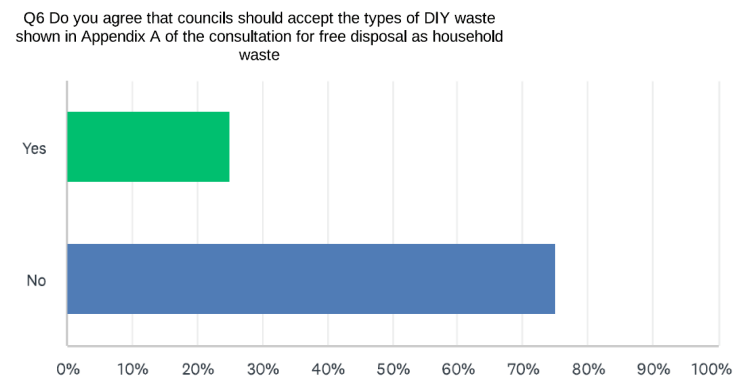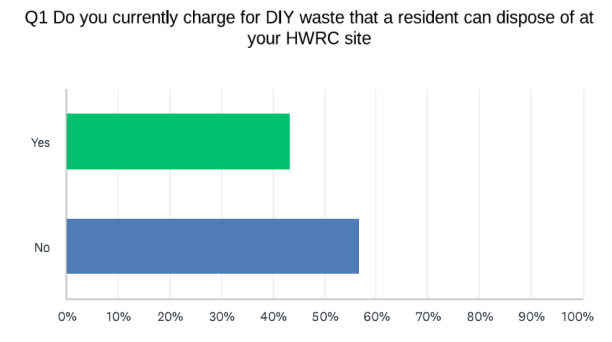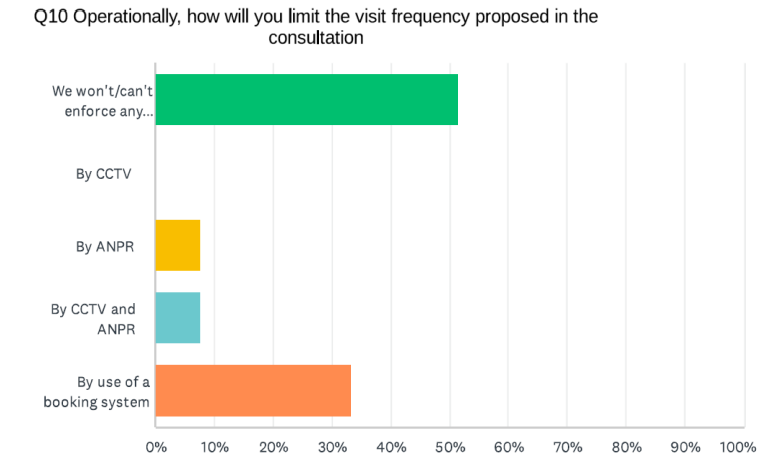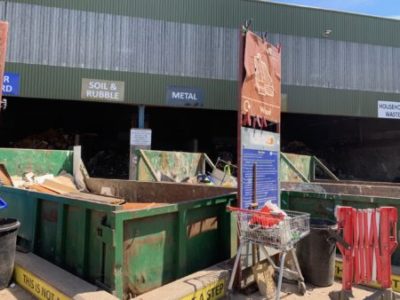The government set out plans in April to ban charges for DIY waste at HWRCs as part of efforts to crack down on fly-tipping (see letsrecycle.com story).
However, LARAC, the organisation which represents local authority recycling officers, said today (21 June) that the cost of covering any lost income will mean that other council service budgets will be cut.
LARAC has 306 members, 152 of whom operate HWRCs. The survey, which ran between for two weeks to 10 June, received 45 responses.

Many respondents stated that the proposals could mean the closure of some HWRC sites to cover the increased costs, LARAC said.
Some respondents suggested the measures could see the removal of non-statutory waste streams or the reduction of containers for household waste to make room for containers for DIY waste at the sites.
John Coates, LARAC’s head of external affairs, said: “These proposals seem to be for the convenience of a few householders and contrary to the waste hierarchy and established practices in many councils which have the support of their local communities and are excellent examples of local democracy in action.”
Survey
Respondents to the survey said the number of fly-tips reported as DIY wastes was under 10%.

The number of respondents who levy charges and those that do not were roughly equal, LARAC said. Of those that do not charge, 58% limit the volume of DIY waste disposed, while 15.6% of respondents both charged and limited DIY waste disposal.
Fewer than one in five respondents thought that Defra’s proposals to limit the amounts of DIY waste through capacity (18% confident) and frequency (17% confident) limits were “workable” and enforceable.
More than half (51%) of respondents believe Defra’s proposals to restrict uncontrolled disposal of DIY waste at HWRCs are “unenforceable”.
Booking systems
The “most effective” way to control the frequency of visits to reduce congestion on site and the nearby road network is to use a booking system, LARAC said. A third (33%) of respondents see this as the most effective way to enforce Defra’s proposed restrictions.

However, Defra’s plans also include a review on the use of booking systems at HWRCs, “amid concerns these could be making it harder for people to dispose of their waste and increasing the risk of fly-tipping.”
LARAC said it was “concerned” Defra could use the review as rationale to “outlaw” the use of booking systems.
Tradespeople
In terms of the DIY waste itself, LARAC believes the use of drainage and sewer pipes, roofing materials, and lintels are not tasks that a “normal householder” can complete.

LARAC fears it would “almost impossible” to identify whether delivered wastes were created by a householder or by a tradesperson.
“Traders will leave waste from their activities for the householder to deal with or bring it to a HWRC site for free disposal, on the pretence that it is their own household waste,” Mr Coates said.
“This is in contradiction with the consultations on digital waste tracking and waste carrier registration which propose tighter controls on DIY wastes and who produces them.”
Elections
LARAC described the government’s ongoing consultation on the charges as an “unexpected announcement during the pre-election period leading up to the May elections.”
“The headline statement of ‘this will save householders up to £10 per item’ was misleading as lost income will have to be covered by local taxpayers and could be seen as an attempt to influence voters during the current cost of living crisis,” Mr Coates said.












Subscribe for free